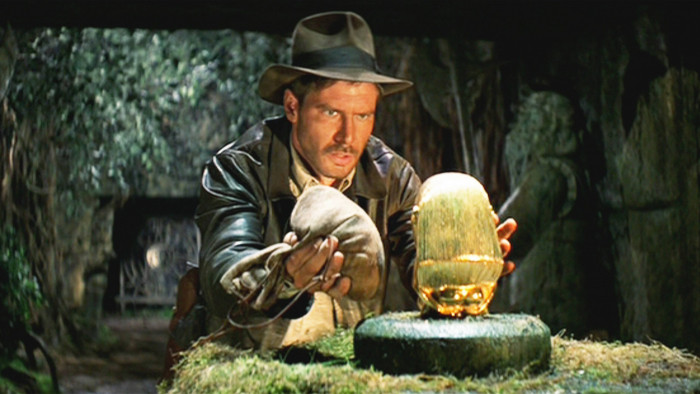'The Night Of' star Riz Ahmed: "I think change is coming, but it’s slow”
Formidably talented and unapologetically smart, Riz Ahmed is the kind of British movie star we can get behind


If ever you needed proof that a CV can fail to tell the whole story of someone’s life, Riz Ahmed’s would be it. From the prestigious north London private school Merchant Taylors’ to Oxford’s Christ Church College to Hollywood. It’s a privileged trajectory. Eddie Redmayne, Hugh Dancy, Tom Hiddleston – the list of Oxbridge alumni-turned-actors is extensive, a path so well-trodden it’s lined with a red carpet.
“Not where I come from it’s not,” says Ahmed. “I didn’t grow up with a silver spoon. It wasn’t expected for me to go to the high school I went to, let alone Oxford, let alone drama school, let alone become an actor, so I feel proud. I’ve had to work for the breaks I’ve had, and overcome hurdles put up by society, and hurdles you internalise when you aren’t surrounded by people of that aspiration.”
A lot of actors delight in talking about their journeys, reeling off the trials and tribulations they’ve faced. But Ahmed’s experience, from growing up in one of London’s largest Pakistani communities in Wembley, to appearing in Jason Bourne, hit HBO seriesThe Night Of and Rogue One: A Star Wars Story, all within six months, has seen him travel a rougher road than his CV might indicate.
A NEW DEFAULT
When was the last time British Intelligence officers interrogated Eddie Redmayne in Luton Airport? Have US border officials ever questioned Tom Hiddleston for three hours about his religious and political affiliations, and whether he knew anyone intending to “do harm to the United States”? Ahmed, as a young, jobbing actor, had to endure all of this and more.
It’s understandable, then, that the 33-year-old actor feels passionately about the opportunities – or lack thereof – for UK actors from minority backgrounds. “Change is coming, but it’s slow. The US is better at embracing British talent of different backgrounds than Britain. It’s quite common to have to go over there to get work. It is what
it is, but it’d be nice to feel there’s a space for you in the place where you’re from.”
Isn’t that simply down to the fact that more film and TV gets made in the US? “No, I think it’s the kind of stories we’re choosing to tell in Britain. There’s a big fixation on period drama. We doubled down on that after the financial crash, when people were more risk averse – in the same way Hollywood doubled down on comic-book franchises. The thing is, fixating on period drama is a bit regressive. I don’t want to believe our best stories are behind us.”
Ahmed is articulate and engaging, his tone serious but optimistic. Even when picking me up for using the phrase “non-white” – which I say when discussing a play he put on at Oxford, the only one during his time there that featured two “non-white” leads – he does so in a fraternal way.
“We commonly use this term ‘non-white’ – it’s a normal way for us Brits to discuss it – but I think it’s indicative of something itself; that you’re either white or you’re non-white. Which is weird. Why should white be the default? If we start seeing the world in that way, we’re endorsing the dominance of that situation, we’re reinforcing that state of affairs.”
Ahmed sighs and turns his attention to the Tupperware box on the hotel room coffee table in front of him, containing his long-cold lunch. It occurs to me that just because he speaks so fluently about racism and anti-Islamic sentiment, that doesn’t mean he enjoys it. After all, he’s an actor, here ostensibly to discuss his role in the new Star Wars film. Does he find being the de facto spokesperson for British-Pakistanis in Hollywood frustrating?
“I’m not annoyed by it, but if the conversation becomes about the conversation, and not the work, then we haven’t moved forward at all. I get it, I understand it’s prominent in the media cycle right now, but with all the sh*t I’ve got going on, and the range of work I’ve done…” He lowers his fork and takes a breath. “I’ve got this rap album out that’s critically acclaimed, I’ve just done The Night Of, which is the most critically acclaimed TV show of recent years, I’m in the f*cking Star Wars film, I just did Bourne, I had two independent films out at the Toronto Film Festival… If we’re sitting talking about [race and religion], that in itself says something. The conversation needs to be had, but I guess you want to be seen as an artist and a creative first, before being seen as a collection of labels, because that’s what you hope to transcend with your work.”
Raising his fork again, he jokes, “Don’t quote me describing it like that – I sound like an arsehole.” He laughs, taking a mouthful of chicken.

HARD-FOUGHT FRUITION
His list of credits this year is impressive, and it’s been a long time coming. Ahmed’s first major part came in 2006, in Michael Winterbottom’s The Road To Guantánamo, which won top honours at the British Independent Film Awards, but only managed to raise Ahmed’s profile among the world’s so-called intelligence agencies. He had to wait until 2010 for his breakout role, as Omar in the excellent Four Lions – Chris Morris’s satire about a group of would-be suicide bombers from Sheffield.
In the six years since, he’s juggled a slew of mainly independent, mainly well-received films with a sporadic-yet-accomplished output of rap music.
Wearing a white shirt under an open black bomber jacket, the physically diminutive Ahmed is visibly energised when describing a musical upbringing that included everything from Nas and Wu Tang Clan to Qawwali music legend Nusrat Fateh Ali Khan via UK garage. An eclectic set of influences that are all clearly audible in songs such as Englistan, and on his latest album Cashmere, released with New York rapper Heems and producer Redinho under the name Swet Shop Boys. Songs like T5 and Zayn Malik are political, but refreshingly tongue-in-cheek – more Chris Morris than Morrissey.
I start to bring up one particular line – “Look Zayn Malik’s got more than 80 virgins on him/There’s more than one direction to get to paradise” – but Ahmed quickly interrupts me: “Let’s not say it right now because the Disney reps are here,” he says with a cheeky smile, nodding to the PR women sitting staring at their phones in the corner. “They’re thinking about who to put on the lunch boxes.”

CHANGING THE UNIVERSE
Those’ll be the Star Wars lunch boxes, owing to his role alongside fellow Brit Felicity Jones in Rogue One: A Star Wars Story – a standalone film set between Episodes III and IV about a crew of rebellious ruffians who catch a whiff of the Empire’s plans to build a planet-destroying space station, and battle to do something about it. Ahmed plays Bodhi Rook, an ex-Imperial freight pilot who turns his back on his evil employers. More war movie than sci-fi epic, it’s a tangential departure from the Luke Skywalker storyline.
“Star Wars is the first film I remember watching, and it had a massive impact,” he says. “Me and my brother started acting out these films at home. Just running around,” he raises his hands as if holding a blaster, and makes child-like firing sounds. Did he ever think he’d get a chance to live out those dreams for real? “No, never. Who does? I mean, I’m sure there are some incredibly focused, driven sociopaths who think, ‘Yeah I’m going to be in a Star Wars film’, and then aren’t surprised when they are, but I’m not one of them.”
Partly that’s because, well, who was to say there’d even be another Star Wars movie? Or that Ahmed’s acting career would take off enough to see him starring in one? But it was also, significantly, down to the fact that when he was young, there just wasn’t anyone on the small screen, or the big one, that looked like him. By way of explanation, Ahmed recounts what Pulitzer Prize-winning-novelist Junot Díaz cited as the reason he became an author: “You read that monsters, vampires, don’t have a reflection. So growing up, reading books, watching TV, he said, ‘Sh*t, what kind of monster must I be? I don’t see myself reflected back here.’”
Ahmed believes a film like Rogue One can play a crucial role in affecting positive change. “The cool thing about the Star Wars universe is that these films help shape culture. We’re living in a more global world, and it’s only right that our films reflect that.”
And we should live in a world where a young, British-Pakistani, Muslim actor doesn’t have to go into an interview expecting to field questions about his race or religion rather than his new project. Ahmed is all too aware of the opportunity he has to help make that world a reality. He waves his fork and finishes his chain of thought. “Díaz ends that quote saying, ‘Before I leave this place, I’m going to build some motherf*cking mirrors.’ Hopefully that’s what we’re all trying to do.”
Rogue One: A Star Wars Story is at cinemas from 16 December
Latest
Related Reviews and Shortlists


The 10 best war movies of the 21st century








